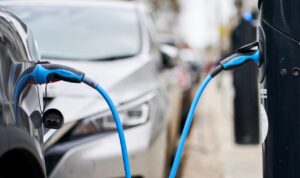How to Find a Used Electric Car With a Clean Title is a journey that many potential car buyers are embarking on today. With the rise of electric vehicles, understanding what makes a used electric car a great purchase is essential. The advantages of electric cars, such as reduced emissions and lower operating costs, make them a desirable choice. However, ensuring that the vehicle has a clean title is just as important as understanding its features and benefits.
This overview will guide you through the steps necessary to find a reliable used electric car that meets your expectations.
From researching the market to verifying the title, every aspect plays a vital role in securing the right vehicle. With a plethora of information available, knowing where to look and what to prioritize can make your shopping experience both efficient and rewarding.
Understanding Electric Cars
Electric vehicles (EVs) are becoming increasingly popular as technology improves and environmental awareness grows. At their core, electric cars use an electric motor powered by rechargeable batteries, unlike traditional gasoline vehicles that rely on internal combustion engines. This fundamental difference brings about numerous benefits, making electric cars an appealing choice for many drivers. Electric cars offer a range of advantages over their gasoline-powered counterparts.
They are typically more efficient, converting over 60% of electrical energy from the grid to power at the wheels, compared to gasoline vehicles, which convert only about 20% of the energy stored in gasoline. Moreover, electric vehicles produce zero tailpipe emissions, which significantly reduces air pollution and helps combat climate change. The reduced maintenance costs, thanks to fewer moving parts and no oil changes, further enhance their appeal.
Differences Between Electric Cars and Traditional Gasoline Vehicles
While both electric cars and gasoline vehicles serve the same primary function of transportation, their operational mechanics and overall environmental impact are profoundly different. Understanding these differences highlights the unique benefits of electric vehicles.
1. Power Source
Electric vehicles are powered by batteries that can be recharged using electricity from the grid, while gasoline vehicles rely on burning fossil fuels.
2. Emissions
Electric cars emit no pollutants from their tailpipes, leading to cleaner air, whereas gasoline vehicles contribute significantly to greenhouse gas emissions.
3. Fueling Process
Charging an electric car can be done at home or at charging stations, often taking longer than filling a gasoline tank, which takes just a few minutes.
4. Maintenance
Electric vehicles generally require less maintenance due to fewer moving parts, as they lack oil engines, exhaust systems, and transmission systems common in gasoline vehicles.
5. Driving Experience
Electric cars often provide a quieter, smoother ride with instant torque, offering a different driving experience compared to the traditional engine noise and throttle response of gasoline cars.
Key Features to Look for in a Used Electric Car
When searching for a used electric car, it’s essential to consider certain features that can impact the vehicle’s performance, reliability, and overall value. These features will help ensure that the chosen vehicle meets your needs and expectations.Important aspects to evaluate include:
Battery Health
Check the battery’s condition and capacity. The battery is one of the most expensive components of an electric vehicle, and understanding its health can provide insight into the car’s expected range and longevity.
Range
Look for vehicles with a range that fits your daily commuting needs. Different models offer varying ranges on a single charge, so it’s important to select one that aligns with your lifestyle.
Charging Options
Assess the types of charging ports and available charging options. Some vehicles may have fast-charging capabilities, while others may only support standard charging.
Warranty and Maintenance Records
Review the vehicle’s warranty coverage and any maintenance records available. A good warranty can provide peace of mind and reduce potential repair costs.
Tech Features
Evaluate the technology available in the car, such as advanced driver-assistance systems and infotainment integrations, which can enhance safety and the overall driving experience.
“Electric vehicles not only contribute to a cleaner environment but can also provide significant savings over their lifetimes through lower operating and maintenance costs.”
Importance of a Clean Title
When considering the purchase of a used electric car, one of the most significant factors is the title status of the vehicle. A clean title indicates that the car has not been declared a total loss by an insurance company, meaning it hasn’t suffered major accidents or damage that could affect its safety or performance. Understanding the importance of a clean title can protect buyers from unforeseen issues and ensure they make a sound investment.
A clean title signifies that the vehicle has a clear ownership history and has not been subjected to severe structural damage or repair. It matters greatly because purchasing a car with a salvage or rebuilt title can lead to a host of problems. Such vehicles may have hidden issues that compromise their safety, reliability, and even efficiency, particularly crucial for electric cars that rely on their battery systems.
Owners of vehicles with salvage titles often face challenges in obtaining insurance or financing, which can complicate ownership down the line.
Risks of Buying a Salvage or Rebuilt Title
Purchasing a used electric car with a salvage or rebuilt title entails several risks that can affect the owner’s experience and financial investment. It is essential to be aware of these risks to make an informed decision.
- Hidden Damages: Vehicles with salvage titles may have undergone significant repairs that aren’t immediately visible. For electric cars, battery systems and electronic components can be particularly vulnerable to damage that isn’t always addressed in a rebuild.
- Insurance Challenges: Many insurance companies are reluctant to provide full coverage for salvaged vehicles. This can lead to higher premiums or limited policy options, causing financial strain for the owner.
- Lower Resale Value: Cars with a salvage title typically have a much lower resale value than their clean-title counterparts, which can hinder the owner’s ability to recoup their investment.
- Safety Concerns: If the repair process was incomplete or not conducted according to industry standards, the vehicle may pose safety risks that could jeopardize the driver’s safety.
A clean title can significantly influence the resale value of the electric car. Cars with clean titles are generally perceived as more reliable, which enhances their appeal to potential buyers. A well-maintained electric vehicle with a clean title can maintain a higher market value due to the assurance of its condition and history.
Investing in a clean-title electric car not only ensures peace of mind but also provides a more stable financial future when it comes time to sell or trade in.
Researching Used Electric Cars
Researching used electric cars can be an exciting process, especially with the growing popularity of electric vehicles (EVs). Finding the right vehicle involves a bit of legwork online, but with the right strategies, you can easily navigate the market to find a car that meets your needs and budget. A thorough research process not only saves time but also ensures you make an informed decision.
It’s essential to understand the specific characteristics of electric cars, as well as their unique features compared to traditional gas-powered vehicles. This will help you identify the best options available while avoiding potential pitfalls.
Methods for Researching Used Electric Cars Online
Several effective methods can be utilized to research used electric cars online. It’s important to utilize reputable sources and ensure the information is accurate. Here’s a breakdown of effective online research strategies:
- Use Manufacturer Websites: Many manufacturers provide certified pre-owned programs with detailed information about their used electric vehicles. This is a great place to start when looking for reliable options.
- Utilize Online Marketplaces: Websites like Autotrader, CarGurus, and Cars.com allow you to filter searches by electric vehicle type, price, and location, making it easier to find suitable cars.
- Leverage Social Media Groups: There are numerous groups dedicated to electric vehicles where members share listings, advice, and experiences, providing invaluable insights.
- Check Local Dealerships: Many dealerships have online inventories that list used electric vehicles. Visiting their websites can yield good options, often with certified inspections.
Importance of Checking Vehicle History Reports
Vehicle history reports are crucial when researching used cars, particularly electric vehicles. These reports give you a detailed account of the car’s background, helping you avoid potential issues. Key aspects to look for in a vehicle history report include:
- Accident History: This indicates whether the car has been involved in any accidents and how severe they were, which may impact its performance and safety.
- Title Status: Verify if the vehicle has a clean title, salvage title, or any liens, which can affect ownership and future resale value.
- Mileage Records: Inconsistencies in mileage readings can suggest odometer tampering, which should raise red flags.
- Maintenance Records: A history of regular maintenance is indicative of a well-cared-for vehicle, which is particularly important for EVs due to their specialized nature.
Trusted Websites for Finding Used Electric Cars
Finding a reliable source to search for used electric vehicles is vital for ensuring you’re making a sound investment. Below is a list of trusted websites and platforms that specialize in used electric cars:
- CarMax: Offers a wide selection of used EVs with a no-haggle pricing structure, plus a comprehensive inspection report.
- Electric Vehicle (EV) Specific Sites: Websites like PlugStar and EV-CPO focus on electric vehicles, listing certified pre-owned options.
- eBay Motors: You can find both auctions and buy-it-now listings for used electric vehicles, often at competitive prices.
- Facebook Marketplace: A growing platform for local sales, where you can find a variety of used electric cars from individual sellers.
Inspecting the Vehicle

When purchasing a used electric car, conducting a thorough inspection is paramount to ensure you’re making a wise investment. This process not only helps identify any potential issues but also gives you peace of mind that your chosen vehicle is in good condition. Knowing what to look for can make all the difference in your buying experience.Inspecting a used electric car involves several steps that focus on both the exterior and interior of the vehicle, as well as specific components unique to electric vehicles.
Start with a visual inspection of the overall condition, checking for any signs of damage, rust, or mismatched paint that might indicate previous accidents. Next, you’ll want to look under the hood, paying close attention to the battery’s health and other critical systems that support the electric drivetrain.
Key Areas to Inspect
Focusing on specific areas during your inspection can help you uncover any hidden issues. Here’s a detailed checklist to guide you through the process:
- Exterior Condition: Look for scratches, dents, or corrosion. Check the alignment of body panels and inspect the tires for wear.
- Interior Features: Test all electronic components including the infotainment system, climate control, and dashboard displays. Ensure that all buttons and displays function correctly.
- Battery Health: Request a battery health report from the seller if available. A typical electric car battery should retain around 70-80% of its original capacity after several years of use. Some manufacturers provide an onboard diagnostic tool that can offer real-time battery health data.
- Charging Port: Inspect the charging port for any damage or debris. A clean and functional port is essential for efficient charging.
- Fluid Levels: While electric cars don’t require engine oil, checking the coolant levels for the battery management system and other essential fluids is important.
During a test drive, it’s critical to evaluate how the car performs. Here’s what to focus on:
- Acceleration and Handling: Pay attention to how the car accelerates, especially from a stop. Electric vehicles are known for their torque, so you should feel a brisk response.
- Braking Performance: Test both regenerative and conventional braking. Listen for any unusual noises and check for smoothness in operation.
- Noise Levels: Electric cars are generally quieter than their gasoline counterparts. Listen for any odd sounds that might indicate mechanical issues.
- Comfort and Visibility: Assess the comfort of the seats and driving position. Ensure visibility is clear from all angles.
- Range Awareness: Note the vehicle’s range estimation during your drive. This can provide insights into the battery’s efficiency and condition.
“A thorough inspection can save you from future headaches and unexpected repair costs, ensuring you invest wisely in your electric vehicle.”
Verifying the Title
When searching for a used electric car, verifying the title is an essential step in ensuring that you are making a sound investment. A clean title not only provides peace of mind but also confirms the vehicle’s ownership history and whether it has been involved in any significant incidents. Understanding the process of title verification is crucial for any potential buyer.The process of verifying the title of a used electric car typically involves checking with the relevant state department of motor vehicles (DMV) or a similar authority.
This ensures that the title is valid and that there are no liens or other issues associated with the vehicle. To obtain a title report, you can provide the vehicle identification number (VIN) to the DMV or utilize online services that specialize in vehicle history reports. These reports contain crucial information, including the title status, past ownership, accident history, and whether the vehicle has been declared a total loss.
Obtaining a Title Report
Obtaining a title report is a straightforward process that can provide you with significant insights into the vehicle’s history. It typically requires the VIN, and you can often access this report through various online platforms or directly from the DMV. The title report includes important details such as:
- Title Status: Indicates if the title is clean, salvage, rebuilt, or has any liens.
- Previous Owners: Documents the number of previous owners and the duration of ownership.
- Accident History: Provides information on any reported accidents or damage.
- Odometer Readings: Checks for discrepancies in mileage reporting over time.
- Salvage and Flood History: Identifies if the car has been in a flood or declared a total loss.
Reviewing the title report carefully is essential, as it can help you identify any red flags that may indicate potential problems with the vehicle. Look out for the following:
Red Flags in Title Review
While reviewing the title report, there are several key indicators that may raise concern regarding the vehicle’s condition or ownership history. It is important to be vigilant for the following:
- Salvage or Rebuilt Title: Indicates the vehicle has been significantly damaged and repaired, which could affect safety and resale value.
- Multiple Ownership Changes in a Short Time: May suggest issues with the vehicle or dissatisfaction from previous owners.
- Inconsistent Odometer Readings: Discrepancies can signal odometer fraud or issues with the vehicle’s maintenance.
- Liens on the Title: Unresolved liens can lead to complications in ownership transfer.
- Title Washing: Any indication of a title being rebranded from salvage to clean without proper repairs may suggest deceptive practices.
“A thorough title verification can save you from costly mistakes down the road.”
By being diligent in verifying the title and obtaining a detailed title report, you significantly reduce the risk of purchasing a problematic used electric car. It’s a vital step in securing a vehicle that is not only reliable but also a sound investment for the future.
Negotiating the Price
When it comes to purchasing a used electric car, negotiating the price can significantly impact your overall investment. Understanding the value of the vehicle and knowing how to advocate for a fair price are essential skills in this process. Being prepared with the right information can lead to better deals, especially when it involves electric vehicles, where the market can fluctuate based on various factors.Several elements influence the pricing of used electric cars.
Key factors include mileage, battery life, model year, and the overall condition of the vehicle. Electric cars generally have less mechanical wear and tear compared to traditional vehicles, but battery health is a critical aspect that buyers must evaluate closely. Here are some strategies to consider when negotiating the price:
Strategies for Negotiating
Understanding how to navigate the negotiation process can lead to a favorable deal. Here are some effective strategies to keep in mind:
- Do Your Homework: Research the market value of the specific electric car model you’re interested in. Websites such as Kelley Blue Book or Edmunds can provide valuable insights on pricing.
- Assess Vehicle Condition: Inspect the car yourself or have a professional do it. A vehicle in better condition justifies a higher price, but if you find issues, use them to negotiate down.
- Consider Battery Health: Battery replacement can be costly. Check the remaining battery capacity and factor this into your offer. If the battery shows signs of aging, use this as leverage.
- Be Ready to Walk Away: Don’t rush into a deal. If the price doesn’t feel right, be prepared to walk away. This mindset can often lead sellers to reconsider their pricing.
- Highlight Comparables: Present other listings of similar vehicles at lower prices. This can help justify your negotiation for a reduced price.
In addition to these strategies, it’s essential to be aware of average prices for popular used electric car models. Pricing can vary widely based on condition and local market demand. The table below illustrates average prices for some well-known electric car models:
| Model | Average Price (USD) | Average Mileage | Battery Health (Approx.) |
|---|---|---|---|
| Tesla Model 3 | $35,000 | 30,000 miles | 85%+ |
| Nissan Leaf | $15,000 | 40,000 miles | 80%+ |
| Chevrolet Bolt EV | $25,000 | 25,000 miles | 90%+ |
| BMW i3 | $18,000 | 35,000 miles | 80%+ |
By utilizing these negotiation strategies and being aware of average pricing, you can approach the purchase of a used electric car with confidence, ensuring that you secure a deal that aligns with both your budget and the vehicle’s value.
Finalizing the Purchase: How To Find A Used Electric Car With A Clean Title
Once you and the seller have agreed on a price for the used electric car, it’s time to move towards finalizing the purchase. This crucial step involves several actions that ensure the transaction is legally binding and that all necessary paperwork is completed properly.
Steps After Agreeing on a Price
After reaching an agreement, it is essential to take specific steps to ensure that the transaction proceeds smoothly. Here’s a clear Artikel of what needs to be done:
- Secure the Payment: Agree on the payment method that suits both parties, whether it’s cash, a bank transfer, or a certified check.
- Draft a Bill of Sale: Create a bill of sale that includes the vehicle’s make, model, VIN, sale price, and the date of sale. Both you and the seller should sign this document.
- Collect Necessary Documentation: Obtain all relevant documents from the seller, including the vehicle’s maintenance records, the owner’s manual, and any warranties that may still be valid.
Transferring the Title and Registering the Vehicle, How to Find a Used Electric Car With a Clean Title
Transferring the title and registering your newly purchased used electric car is vital for establishing your ownership. Here’s how to navigate this process:
- Complete the Title Transfer: Ensure that the seller signs the title document and dates it. You will also need to fill out your information as the new owner.
- Visit Your Local DMV: Bring the signed title, bill of sale, and valid identification to your local Department of Motor Vehicles (DMV) to register the vehicle in your name.
- Pay Registration Fees: Be prepared to pay any necessary registration fees, which can vary by state and are typically based on the vehicle’s value or weight.
Obtaining Insurance
Before driving your used electric car off the lot, it is critical to obtain insurance coverage. This step is not only a legal requirement but also protects your investment from potential damages or theft.
- Shop for Insurance Quotes: Reach out to multiple insurance providers to get quotes that fit your needs and budget. Be sure to consider coverage options tailored for electric vehicles.
- Choose Your Coverage Levels: Decide on the level of coverage you need, such as liability, collision, and comprehensive coverage, based on your risk tolerance and financial situation.
- Provide Necessary Information: When selecting an insurance policy, you will need to provide the insurer with details about your new vehicle, including the VIN, make, model, and year.
“Always ensure your insurance is active before you hit the road; it’s not just a legal obligation but a safety net for your investment.”
Post-Purchase Considerations
Once you’ve successfully purchased your used electric car, it’s essential to prioritize its maintenance, warranty options, and ongoing education to ensure optimal performance and longevity. Understanding these aspects will help you enjoy your vehicle fully and make the most of your investment in electric mobility.
Tips for Maintaining a Used Electric Car
Proper maintenance of an electric vehicle (EV) differs from that of traditional gasoline cars. Key practices include:
- Regularly checking the battery health and charging performance, as the battery is the heart of your EV.
- Keeping tires properly inflated and rotated to enhance efficiency and safety.
- Utilizing regenerative braking to extend brake life while also maximizing battery range.
- Ensuring software updates are performed; many EVs receive enhancements and bug fixes that improve performance.
- Cleaning the vehicle both inside and out to protect finishes and maintain resale value.
Warranty Options for Used Electric Vehicles
When purchasing a used electric car, understanding available warranty options is crucial. Many manufacturers offer warranties even for second-hand EVs. Factors to consider include:
- Battery warranty: This typically covers battery capacity and performance, often lasting 8 years or more depending on the manufacturer.
- Powertrain warranty: This covers the electric motor and drivetrain components, providing peace of mind for major repairs.
- Extended warranties: Some dealerships offer extended warranties for used electric vehicles, which can cover a broader range of components.
It’s advisable to clarify the existing warranties during the purchase process to understand what is included and what additional coverage you might consider.
Resources for Ongoing Electric Vehicle Education and Support
To stay informed about electric vehicles and their maintenance, utilize various resources that provide valuable information and support. Key resources include:
- Online forums and communities, such as the Tesla Motors Club or the Electric Vehicle Association, where owners share experiences and tips.
- Manufacturer websites that often have detailed owner’s manuals, maintenance tips, and updates on new features.
- Local EV meetups and events that foster community engagement and education on electric mobility.
- Automotive blogs and YouTube channels focused on electric vehicles, offering reviews, maintenance guides, and industry news.
- Government resources for incentives and tax rebates available for electric vehicle owners.
Staying connected to these resources will ensure you are well-informed and can address any concerns that arise during your ownership experience.






